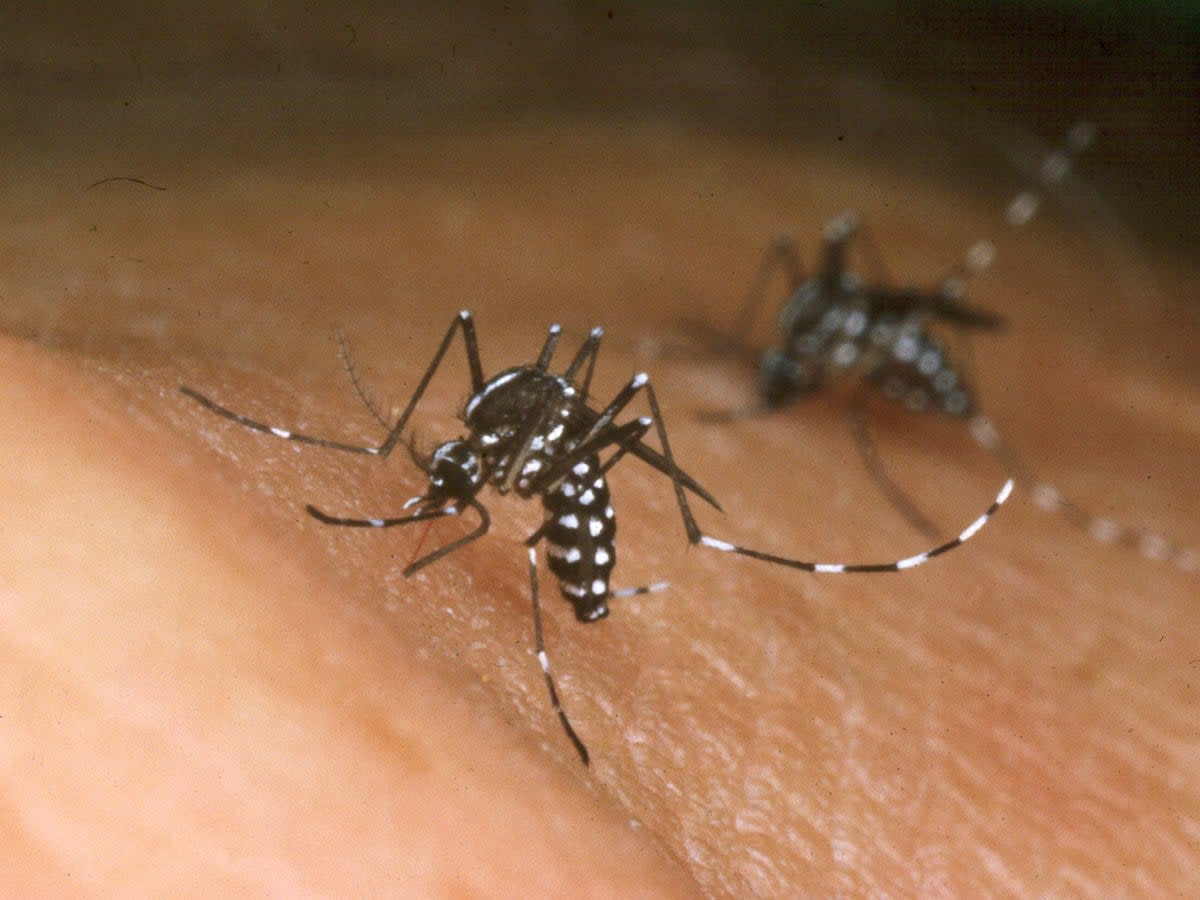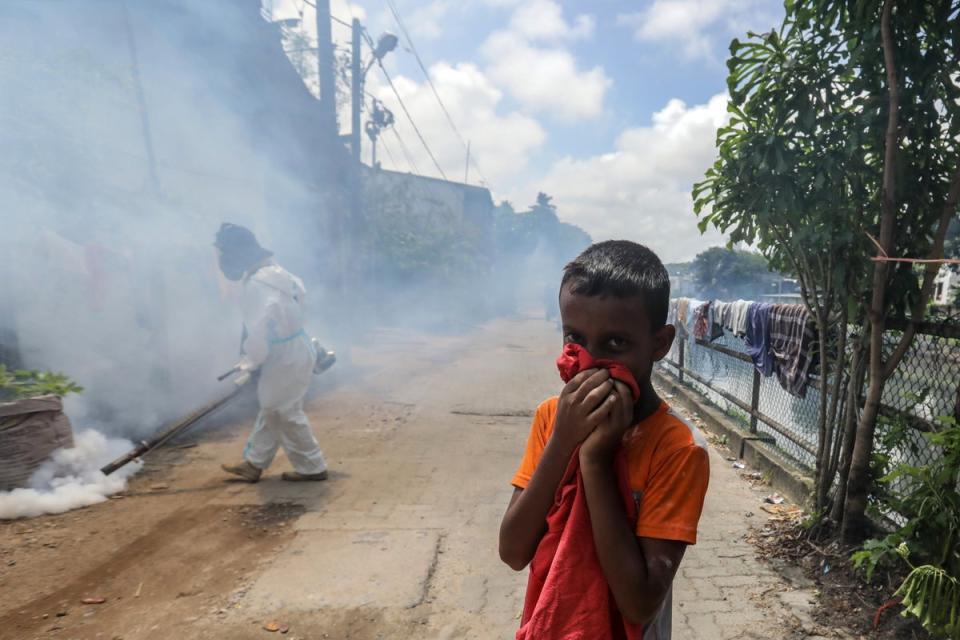Experts warn of dengue fever surge in Europe due to rising numbers of ‘invasive’ tiger mosquitoes

An invasive species of Asian mosquitos growing in Europe due to the climate crisis is believed to be behind a recent surge in dengue in the continent, with experts warning about a further increase in cases in the coming years.
Dengue cases have been rapidly rising across Europe, with some infections turning potentially severe, the European Centre for Disease Prevention and Control (ECDC) warned on Tuesday.
The invasive species, called tiger mosquitos which is predominantly found in tropical countries, has been found in 13 countries in the European Union, the agency said, linking their discovery to “significant” rise in dengue cases this year.
The mosquito has become established in Austria, Bulgaria, Croatia, France, Germany, Greece, Hungary, Italy, Malta, Portugal, Romania, Slovenia and Spain, according to the ECDC.
Tiger mosquitoes spread diseases like dengue fever, chikungunya and Zika virus which wreak havoc in tropical countries every year with millions of cases worldwide.
The species was earlier only found in warmer countries in Asia, Africa and the Americas. But with increased travel and increasing temperatures in Europe due to carbon pollution from burning coal, oil and gas, the summer season is creating an ideal atmosphere for the rise of these mosquitos, experts say.
“Europe is already seeing how climate change is creating more favourable conditions for invasive mosquitoes to spread into previously unaffected areas and infect more people with diseases such as dengue,” said ECDC director Andrea Ammon.
“Increased international travel from dengue-endemic countries will also increase the risk of imported cases, and inevitably also the risk of local outbreaks.”
There were 130 locally acquired cases of dengue in the EU last year, compared with just 71 in the ten-year period between 2010 and 2021.
Imported cases were also on the rise, with 1,572 cases in 2022 and 4,900 in 2023, “the highest number” since the start of EU monitoring in 2008.
While the number of infected people in Europe is currently small, “we will see an increase in the coming years”, Ms Ammon said.
Dengue fever, which is also known as “breakbone fever” due to the muscle spasm and joint pain it inflicts, starts to show its first symptoms after after four to 10 days of bite. Some of the symptoms are similar to the flu.
These mosquitoes spread the virus by biting an infected person and spreading it to another person through their bites.
According to the NHS, It is not usually serious and often gets better on its own. Some people get a more severe type of dengue, but this is rare.
In France, which is holding the Olympics in July, alarm bells have already started ringing this year.
A French health ministry official said earlier the authorities were “fully mobilised” and preparing for any possible infectious disease threats during the Olympics.
Just nine countries had recorded severe dengue outbreaks before the 1970s, according to the World Health Organisation (WHO) but warming temperatures and increasing interconnectedness of global trade and travel in the years since has spread the disease to almost the entire planet now.

Ms Ammon advises that people take “personal protective measures”, adding that “early detection of cases, timely surveillance, further research and awareness-raising activities are paramount in those areas in Europe most at risk”.
The rise in dengue cases is not the only concern. Experts warn that conditions might also lead to an increase in malaria incidents in the future.
Scientific data shows that Europe is the fastest warming continent. The lack of investment in healthcare systems to manage tropical diseases, which were once rare but are now becoming more widespread in Europe, could have serious consequences.
Last year, the UN health agency’s dengue chief Dr Raman Velayudhan warned of a “really worrying” expansion of the virus’s global spread in 2022 – in which the climate crisis has “played a key role”.
The tiger mosquito has also been detected by authorities in the UK on multiple occasions since 2016, in England’s southeast.
According to one 2019 study published in the Journal of the Royal Society Interface, these mosquitoes could become established across nearly all of England and Wales by the 2060s.
There are concerns that incidents of malaria could also spike on the continent in the future, if conditions are right.
According to the WHO, between 100-400 million people globally are infected with dengue annually, with about 100 million becoming ill and 21,000 succumbing to the disease.
The rise in dengue cases is a global phenomenon. The number of locally transmitted cases has been increasing in the USA, Italy, and France, with Spain recording its first cases in many years. In 2022, the American continent registered 2.8 million cases of dengue, more than double the 1.2 million cases in 2021.

 Yahoo News
Yahoo News 
